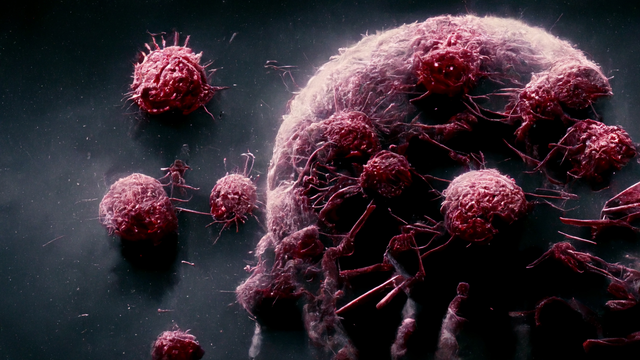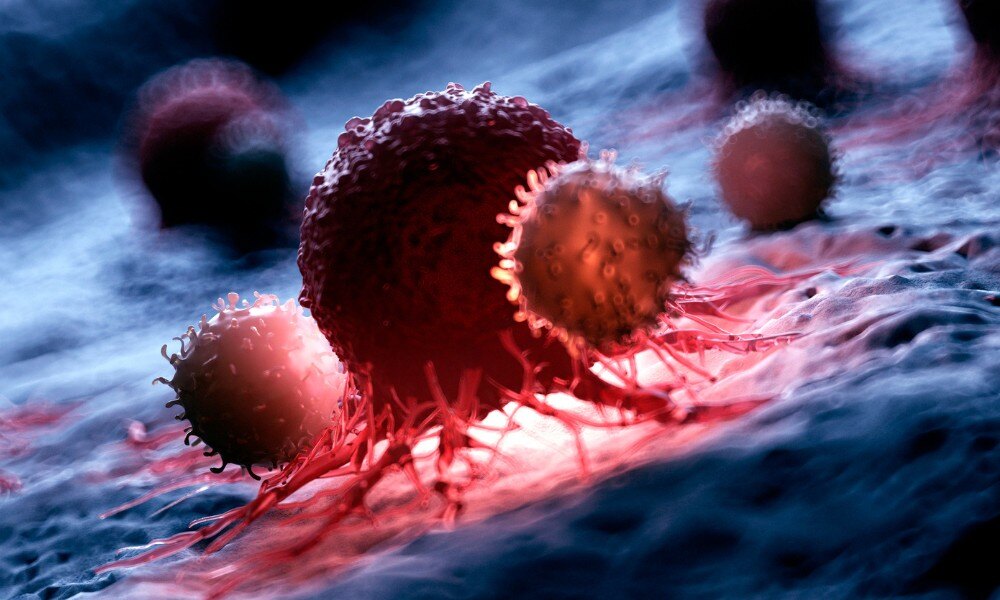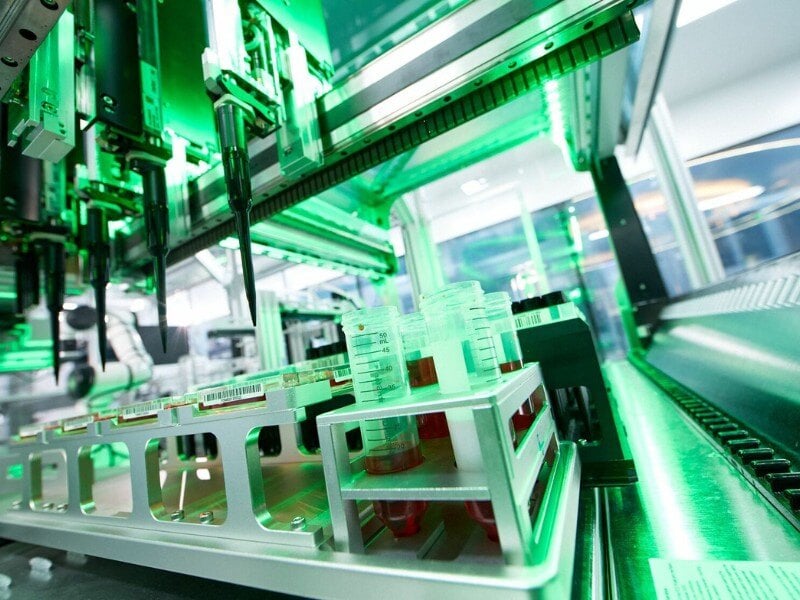Delivering Immuno-Oncology Therapies for Solid Tumours

Cancer immunotherapies have enjoyed notable promise and success in the last decade. For example, immune checkpoint inhibitors targeting PD-1 and PD-L1 have seen a string of approvals since 2014 and are now well prescribed to treat a variety of indications. Furthermore, the boom in interest and clinical approvals of CAR T cell therapy has additionally propelled the field.
Solid tumours present a notable challenge for immuno-oncology. While the successes of the aforementioned therapies have been great, a reoccurring problem has been the high variability between different cancer indications.
Gathered to discuss the nuances and challenges related to delivering immunotherapies to solid tumours were the esteemed panellists at Oxford Global’s panel discussion: Delivering Immuno-Oncology Therapies for Solid Tumours. Moderating the discussion was Francesca Barone, Chief Scientific Officer, Candel Therapeutics, MD, PhD. Barone started her career in academia and moved two years ago from immunology in to the oncology space. Joining Barone on the panel was Namir Hassan, Chief Executive Officer, Zelluna Immunotherapy, and Miha Kosmac, Product Characterisation Team Leader, Achilles Therapeutics.
Hassan’s work has focussed on developing TCR-guided NK cells. His background is in T cell biology and TCR triggering, with 20 years of experience in R&D and early phase clinical trials. Kosmac has spent “the better part of a decade in immunotherapy.” He recently transitioned from antibody-based therapies to work at Achilles, a company developing precision T cell therapies.
Systemic and Local Immunotherapies for Solid Tumours
Barone brought up the concepts of systemic and local immunotherapies. She said that immunologists tend to compartmentalise therapies in terms of targets: “targeting the tumour, lymphoid and secondary lymphoid organs, generating the immune response, in the tumour versus the metastasis.” Barone continued, stating that “each compartment poses different challenges, and we need to think about all of them together and not in isolation when designing an immunotherapeutic approach.”
Arguably we got lucky with CD19 — often times, the field is searching for another ‘magic bullet’.
Hassan was the first to address the issues faced when mounting a robust and long-lasting response at the site of the tumour. He said that this was a “complex question,” and offered some conceptual thoughts on the topic: “In some ways the expectations for delivering durable therapies for solid tumours have been set by the successes that we’ve seen in haematological malignancies,” said Hassan. He continued: “arguably we got lucky with CD19 — often times, the field is searching for another ‘magic bullet’.”
The barriers that the solid tumours pose to targeted therapies are beginning to be better described by researchers, according to Hassan, “and different avenues to attack them.” Hassan further said that he was intrigued by the dual concepts of precision and breadth.
Systemic therapies such as immune-checkpoint inhibitors tend to be broad in their activation. An unintended consequence of this, explained Hassan, is that “unleashing” the immune system in this way causes toxicity. Furthermore, the breadth of the activation means that the therapeutic effect does not have the precision necessary for solid tumours. “Solid tumours are heterogeneous, and so having a very precise therapy may not be able to overcome that heterogeneity and tumour escape,” Hassan continued.
“One of the paradigms that we need to think very deeply about is how can we bring both of those elements into a therapy: precision and breadth where we evoke the breadth of the immune response in a precise way — a balance of toxicity and efficacy,” Hassan explained. He added that in order to mount a durable response, there is usually a compensation of toxicity that has to be accepted and managed. He illustrated this by invoking the history of chemotherapies, where Emil J. Friedrich — the pioneer of chemo — took patients to the edge of death before they had remission. “So, toxicity is always a compromise that needs to be made.”
Hassan worked on the first ever approved TCR therapy: kimmtrak, a bispecific for a target called GP100 (a differentiation antigen, expressed on melanoma). He described his experience when he was leading the first in-human study and found the first tumour response to the drug as “an incredibly exciting time.” Hassan continued: “we only later realised that that was a patient that had uveal melanoma — a subset of melanoma usually excluded from clinical studies.” And so, it transpired that uveal melanoma expressed the target GP100 at higher levels than cutaneous melanoma. “Perhaps by understanding the target,” explained Hassan, “and the relevant biology, then mounting the breadth of the immune response in a targeted or precise way, one can further penetrate solid cancers .”
Short-Term Gains with Progression vs. Systemic Tackling of the Disease
Kosmac said of systemic versus local therapies that when he worked in the antibody field, it was “all about the target.” Whereas, now he is working within cell therapy, the functional and phenotypic elements are taken more into account. In this vein, he brought up primary and acquired resistance and progression: “Primary resistance occurs because the mode of action was just not there. Whereas when you have a stable disease or even partial response and then progression, that tells you that something has changed.”
“I’ve been thinking about where you might want to target a therapy,” Kosmac added. He explained that it was important to consider time-bound effects in the tumour microenvironment and from that point, whether you get progression in the disease. “For stable therapeutic efficacy on the other hand, you might want to target something that is systemic rather than just local.” Innate here is a question of short-term gains with progression versus tackling the disease from a systemic perspective.
- Viral Immunotherapy: A New Approach Towards Tackling Solid Tumours
- Tackling Solid Tumours in Immuno-Oncology
From Barone’s perspective, her team focus of intratumoral delivery, but they see this as just one approach to elicit a strong and durable systemic immune response. “The only way to elicit a long-lasting response is to expose the tumour antigens, and at the same time trigger the immune system,” she said.
Barone stressed that she thought it was possible to elicit this effect locally, but that the education of the lymphocytes against microenvironment antigens would also enable those cells to patrol and target systemic disease. Barone concluded that: “I don’t see these effects as mutually exclusive. You need to be able to achieve both local control and systemic response. There is growing evidence that viral immunotherapy can drive both these activity in monotherapy or with combination therapy regimes.”
Visit Immuno UK: In Person: A two-day event packed with leading speakers, research and cutting-edge presentations on the latest advancements in cancer immunotherapy, with dedicated sessions on different therapeutic modalities as well as case studies on innovative preclinical and translational tools.








